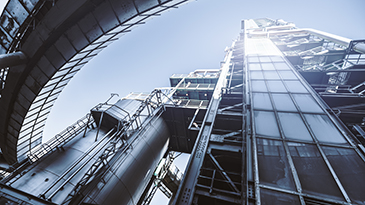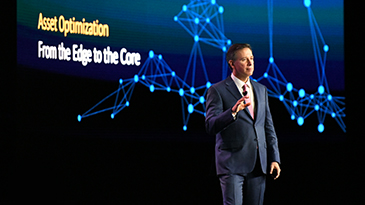We expect all parts of our businesses to work smarter together to maximize profits. Now imagine the parts of your business are the various elements of a refinery — the concept becomes a bit more complicated.
Process industry companies have been increasingly embracing the importance of digitization to make these assets work smarter across refineries. Still, we find that there are roadblocks to solve and opportunities to maximize profits. Solutions are envisioned where each digitized asset should communicate with another. This is where the great potential of artificial intelligence (AI) lies.
According to Accenture, the impact of AI technologies on business is projected to increase labor productivity by up to 40% and enable businesses to make more efficient use of their time. Engineers across various fields have implemented AI solutions to optimize digitalization. The process industries, however, have a unique challenge in taking this automation to a new level. It’s not as simple as programming a cash register POS to send end-of-day sales reports to the accounting software. In refineries, we’re dealing with massive, high-yield, complex machinery that must be equipped with IIoT technology.
When you consider the capital-intensive work of the industry, the current adoption of IIoT and digital technologies is impressive. Asset-intensive businesses can rarely afford to replace all their infrastructure; these companies are working with decades-old machinery, operating with great yields of highly profitable materials. The mere act of equipping these pumps and tanks with sensors to enable digital technologies to work with the materials is an accomplishment in itself.
Using Data to Streamline Complex Operations
Within the process industries, we have many factors to consider. We’re working with expensive materials alongside tight budgets. We’re making sure that chemical processing techniques follow defined procedures with appropriately managed chemical handing and emissions. We’re ensuring the safety of our operators throughout their work. We’re doing all of this while thinking of the bottom line.
By integrating digital tools, we have the opportunity to increase capacity and push yields higher. We can do that today with our AspenTech Production Optimization solution. In addition, machine learning techniques such as those provided through the use of Aspen Mtell® can analyze equipment to ensure companies are well prepared for pending mechanical failures — thereby enabling optimal asset utilization and reducing the risk of lost revenue.
The assets being used in these projects are huge, but the question we always come to is: How can I leverage these assets as long as possible? Beyond making sure a refinery is equipped with the necessary tools to start the digitization process, companies should begin embracing AI tools. By leveraging AI, the digital tools in place will work to their full advantage and successfully create a network of communication between various parts of the asset lifecycle.
Many process industry leaders have already overhauled their efforts to digitize their plant. If you’re in this group, it should be seamless to integrate AI technologies to optimize the output of your digital solutions. Determine what technologies you have in place, and what more they can do to stretch your assets to their maximum capacity.
Don’t Get Caught Up In Consumer Industry Comparisons
As an industry, we are in a strong position to embrace AI, and many leaders are realizing the benefit. It’s easy to feel like progress is slow when, everywhere you turn, there’s another AI technology. Home products are using machine learning to figure out when you want your bedroom warm or cold. We can restock our pantries by speaking a simple phrase out loud.
In a world where AI is taking over the consumer marketplace, it’s important for process industry workers to avoid comparing progress. The process industry is increasingly making waves with integrating AI technologies, and the future only holds more opportunity.
This piece is based on an interview with Lina Liberti, SVP, Product Marketing, from OPTIMIZE 2019. Watch the full video interview here.





Leave A Comment